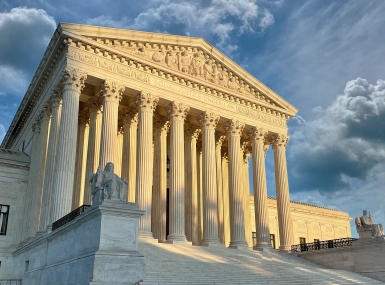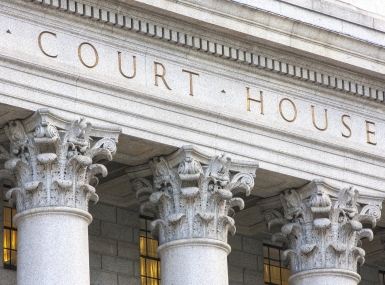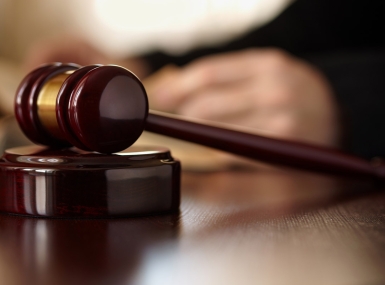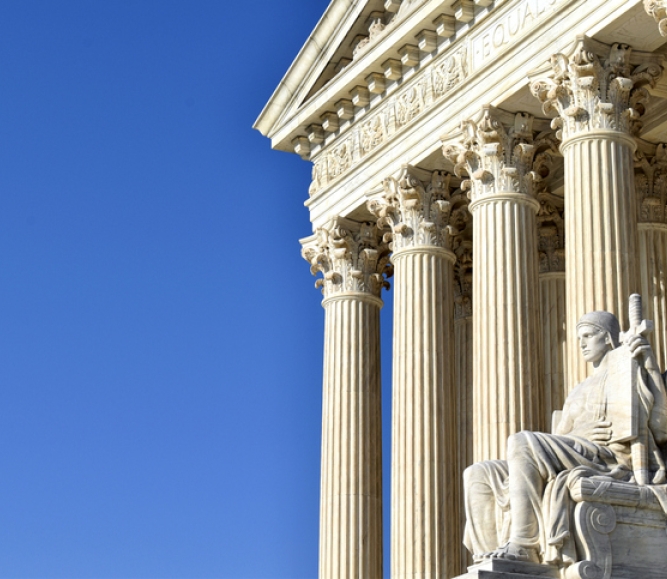Supreme Court Update: Lindke v. Freed/O'Connor Ratcliff v. Garnier
Author
Upcoming Events
Related News

Supreme Court Update: Lindke v. Freed/O'Connor-Ratcliff v. Garnier
COUNTY NEXUS
Clear guidelines governing when public officials' use of personal social media accounts constitutes state action can help local governments to avoid liability without infringing on the First Amendment rights of their public officials or citizens.
BACKGROUND
The First Amendment prohibits the government from excluding citizens from a public forum on the basis of their viewpoints. Public officials acting under color of state law similarly may not use the authority of their offices to deprive citizens of their First Amendment rights. However, the application of this protection in the context of social media has been inconsistent across federal circuit courts. Although these courts agree that viewpoint discrimination by the government on social media is unlawful, they disagree on how to assess whether a public official is acting under color of state law in the operation of their social media accounts. Lindke v. Freed and O’Connor-Ratcliff v. Garnier pertain to whether public officials who use social media to communicate with constituents were engaging in state action when they blocked individuals from what they claim are personal social media accounts, and therefore violating first amendment rights. The case creates precedent for distinguishing between public and personal social media accounts that will inform county government policies and trainings to avoid liability and protect first amendment rights.
NACo ADVOCACY
NACo filed an amicus brief with the Local Government Legal Center in support of neither party, arguing for a clear rule that limits the liability of county governments while protecting the First Amendment rights of public officials and citizens alike.
CURRENT STATUS
On March 15, the Court issued a 9-0 ruling in Lindke v. Freed that also applies to O'Connor-Ratcliff v. Garnier, vacating the ruling in both cases and remanding them back to the lower courts. The opinion establishes a new test for determining whether a local official’s personal social media account can be considered “state action." First, the official must have authority to speak on behalf of the government. Second, the official must have been exercising that power when creating the social media post in question. Learn more about the decision here.
2024-2025 Supreme Court Term

NACo Legal Advocacy: Ames v. Ohio Department of Youth Services
As one of the largest employers in the country, counties have a significant interest in cases like Ames v. Ohio Department of Youth Services (Ames v. Ohio) that could expand county liabilities as employers.

NACo Legal Advocacy: City of Buffalo et al. v. Kia/Hyundai
The question at hand in City of Seattle et al. v. Kia/Hyundai is whether or not the Federal Motor Vehicle Safety Standard preempts state tort claims brought forth by local governments alleging that Kia and Hyundai’s failure to install “reasonable” anti-theft technology constitutes negligence and public nuisance.

NACo Legal Advocacy: Perttu v. Richards
Perttu v. Richards has implications on the Prison Litigation Reform Act (PLRA) and could increase the amount of Section 1983 inmate-initiated cases against county jails that reach federal court, ultimately resulting in counties having to expend resources on frivolous lawsuits.

NACo Legal Advocacy: McLaughlin Chiropractic Associates, Inc. V. McKesson Corporation
McLaughlin Chiropractic Associates, Inc. V. McKesson Corporation could make it more difficult for counties to challenge FCC orders, many of which have taken steps to preempt and curtail local authority by limiting counties’ abilities to manage their own right of way and assess fair market value permitting and impact fees on providers seeking to construct, modify or extend telecommunications infrastructure in their communities.

NACo Legal Advocacy: San Francisco v. Environmental Protection Agency (EPA)
San Francisco v. Environmental Protection Agency (EPA) has implications for the ability of county governments that own and operate wastewater treatment facilities to comply with National Pollutant Discharge Elimination System (NPDES) permit requirements.

NACo Legal Advocacy: Lackey v. Stinnie
Lackey v. Stinnie will impact the ability of state and local governments to avoid paying litigation fees in a civil rights case if they change their conduct (i.e. repeal a law) after a court has granted a preliminary injunction.

NACo Legal Advocacy: Bondi v. VanDerStok
Garland v. VanDerStok has implications for the ability of county law enforcement to uphold public safety and investigate crimes involving ghost guns.

NACo Legal Advocacy: Stanley v. City of Sanford
Stanley v. City of Sanford will impact the ability of county governments to balance budgets by reducing or eliminating post-employment benefits for disability retirees.

NACo Legal Advocacy: EMD Sales, Inc. v. Carrera
EMD Sales, Inc. v. Carrera could make it more difficult for county governments to prove exemptions under the Fair Labor Standards Act (FLSA), which would increase the potential for costly litigation.

NACo Legal Advocacy: Federal Communications Commission, et al v. Consumers' Research, et al
Federal Communications Commission, et al v. Consumers’ Research, et al. (FCC v. Consumers’ Research) could jeopardize what is known as the Universal Service Fund (USF). Through the USF, the FCC has provided billions of dollars to local governments and our residents, helping provide essential telecommunications and broadband services to unserved and underserved communities. FCC v. Consumers’ Research challenges the FCC’s legal authority behind the USF, putting multiple programs essential to equitable broadband deployment at risk.
Advocacy
U.S. Supreme Court establishes clear test for classifying private social media use as state action
On March 15, the U.S. Supreme Court issued a 9-0 ruling in Lindke v. Freed, which together with O’Connor-Ratcliff v. Garnier focused on the question of whether and when a public official’s use of a personal social media constitutes “state action” governed by the First Amendment.

Featured Initiative
Supreme Court Advocacy Hub

